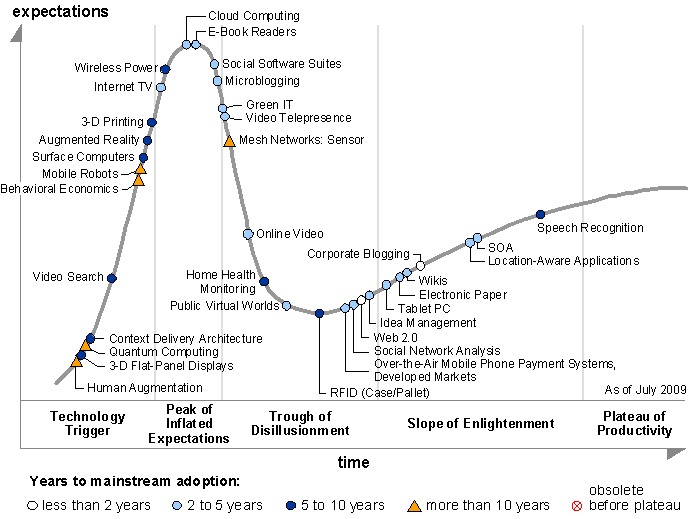As a social scientist, I find it particularly thrilling to be working on a phenomenon that is very up-to-date. I am not looking at ancient data or analyzing people who have passed away a long time ago, but instead I focus on people’s behavior and attitudes in today’s world and their impact on how organizations conduct business. I was delighted to read this week’s special report on social networking by The Economist. Please find below my notes and a few thoughts on the report.
1. Networks facilitate creative endeavors
Social network sites allow people to connect to each other and swap relevant information. This is likely to enhance organizations’ creative potential and tap into the wisdom of the crowds. The days of specialist silos are long gone. Organizations can leverage their employees’ knowledge effectively by employing collaborative technologies.
2. The network effect & exponential utility growth
The network effect and resulting feedback loops have been observed with the introduction of a variety of techological inventions, such as the phone, the Internet, etc. It states that the value of a product or service increases as more people use it. The same is true of social network sites. The more people seem to use Facebook or Twitter, for example, the better and more nuanced the information we obtain on these networks.
3. Cluttering of social network sites
I have heard a number of people express worries about the plethora of sites that have recently sprouted. There are places for all kinds of interest groups. Staying on top of these developments is time consuming. What I expect to see more often in the future are portable identies, such as Facebook Connect, that allow their users to take their profile information from one site to another. This is a keynote presentation about Identity 2.0 by Dick Hardt, Founder and CEO of Sxip Identy. He makes this point very vividly.
4. Cultural change: openness & self-esteem
Another common concern regarding the use of social network sites is the loss of privacy. How much do people reveal about themselves on their online profiles. Do they give away too much personal information let alone proprietary company intelligence? In the interview, Martin Giles is being asked whether the use of social network sites even transforms personality. He speaks of a polarizing effect where celebreties, in particular, blow up their egos massively or become very humble through the use of social network sites. I have not come across any study that would confirm this hypothesis, however, the question of how the use of social network sites affects measures of self-esteem has been addressed before. The Journal of Cyberpsychology & Behavior is a good source for further references.
5. Is ‘Enterprise 2.0’ just a hype?
“In the business world there has also been much hype around something called ‘Enterprise 2.0’, a term coined to describe efforts to bring technologies such as social networks and blogs into the workplace.”
To my mind, this statement is a bit too playful. If you look at Gartner’s 2009 Hype Cycle Special Report, many of the quoted technologies have surpassed the point of inflated expectations. Blogging, Wikis and Social Network Analysis are now on their way to maturity. This argument can be backed by a couple of books that have recently been published, for example Andrew McAfee’s Enterprise 2.0: New Collaborative Tools for Your Organization’s Toughest Challenges and Niall Cook’s Enterprise 2.0: How Social Software Will Change the Future of Work.
via gartner.com
6. Social networking = social notworking?
“The executives’ biggest concern was that social networking would lead to social notworking, with employees using the sites to chat with friends instead of doing their jobs.”
Again, this is a question of how collaborative technologies are employed and what incentives are being used to engage employees. I have written about this earlier. A paper on the ‘Effects of feedback and peer pressure on contributions to enterprise social media’ has been published in 2009 by the Hewlett-Packard Laboratories and provides more references on the subject.


